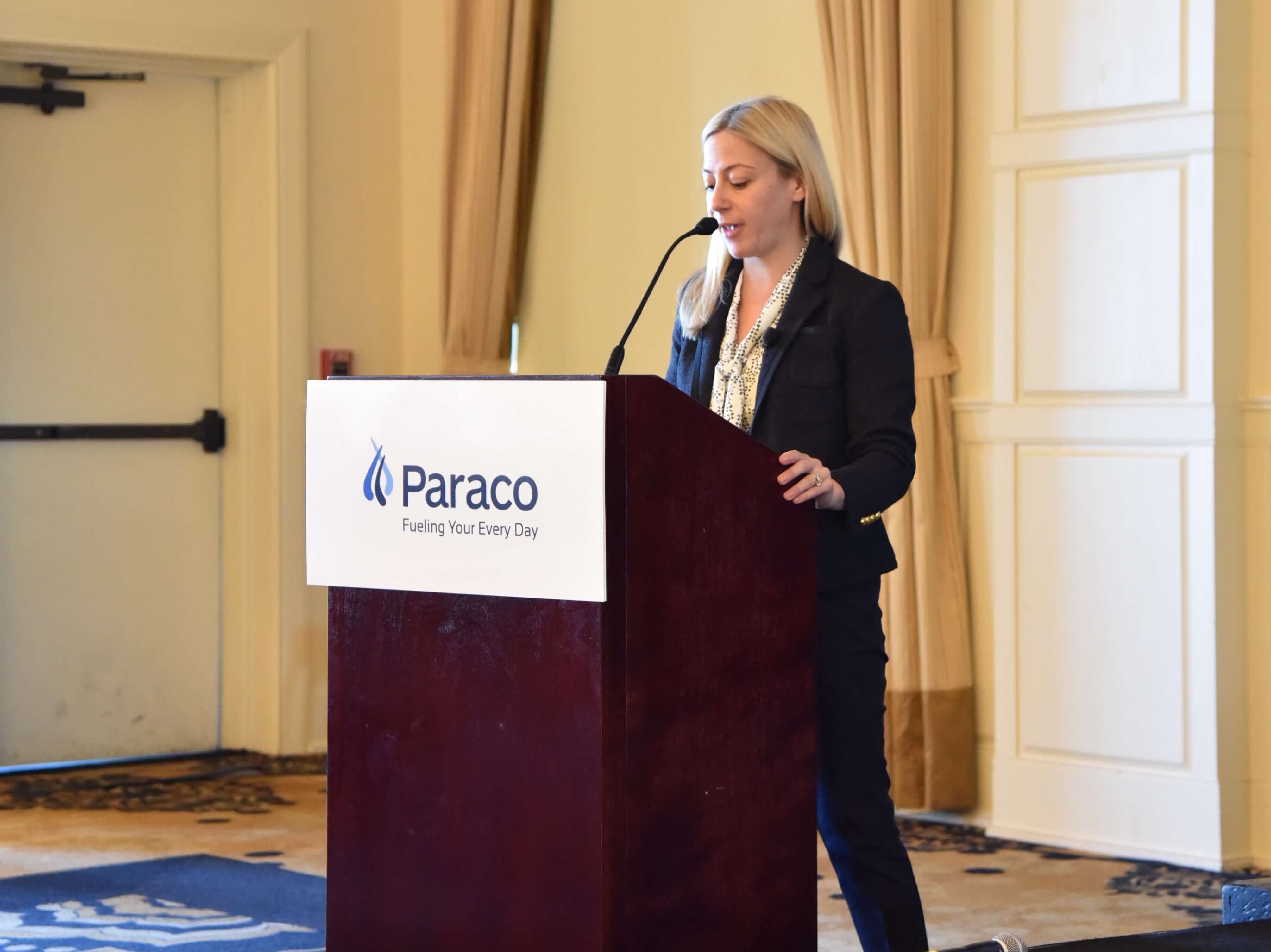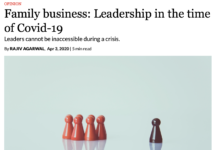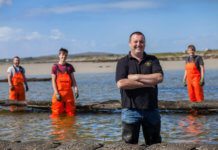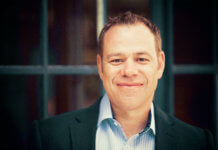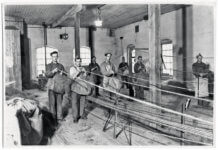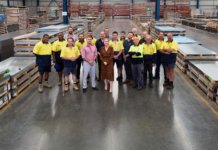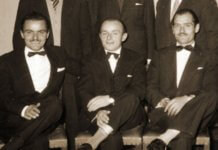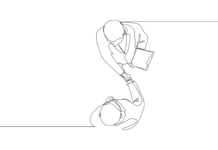Paraco Gas is celebrating its 50th anniversary this year. The third-generation family firm is the 10th largest propane retailer in the United States, serving 120,000 customers throughout the northeastern U.S.
Half a century ago, Pat Armentano, Paraco’s founder, began selling propane out of his garage in Mount Vernon, New York. His granddaughter, Christina, the Executive Vice President of Sales and Business Development of the Paraco Gas Corporation, is following in his entrepreneurial footsteps.
After building a successful corporate career outside the family business, Christina was compelled to join Paraco in 2014. She knew she was the best candidate for the role and could not pass up the opportunity to build on her grandfather’s legacy.
Christina, like many family business members, is focussed on creating sustainable long-term gains. Combining 21st-century acumen with a well-established culture of entrepreneurship, she seeks to empower employees with a sense of ownership and pride.
Tharawat Magazine had the opportunity to sit down with Christina Armentano to discuss her return to the family business, the challenges of prioritising culture in a rapidly expanding business and her vision for Paraco’s future.
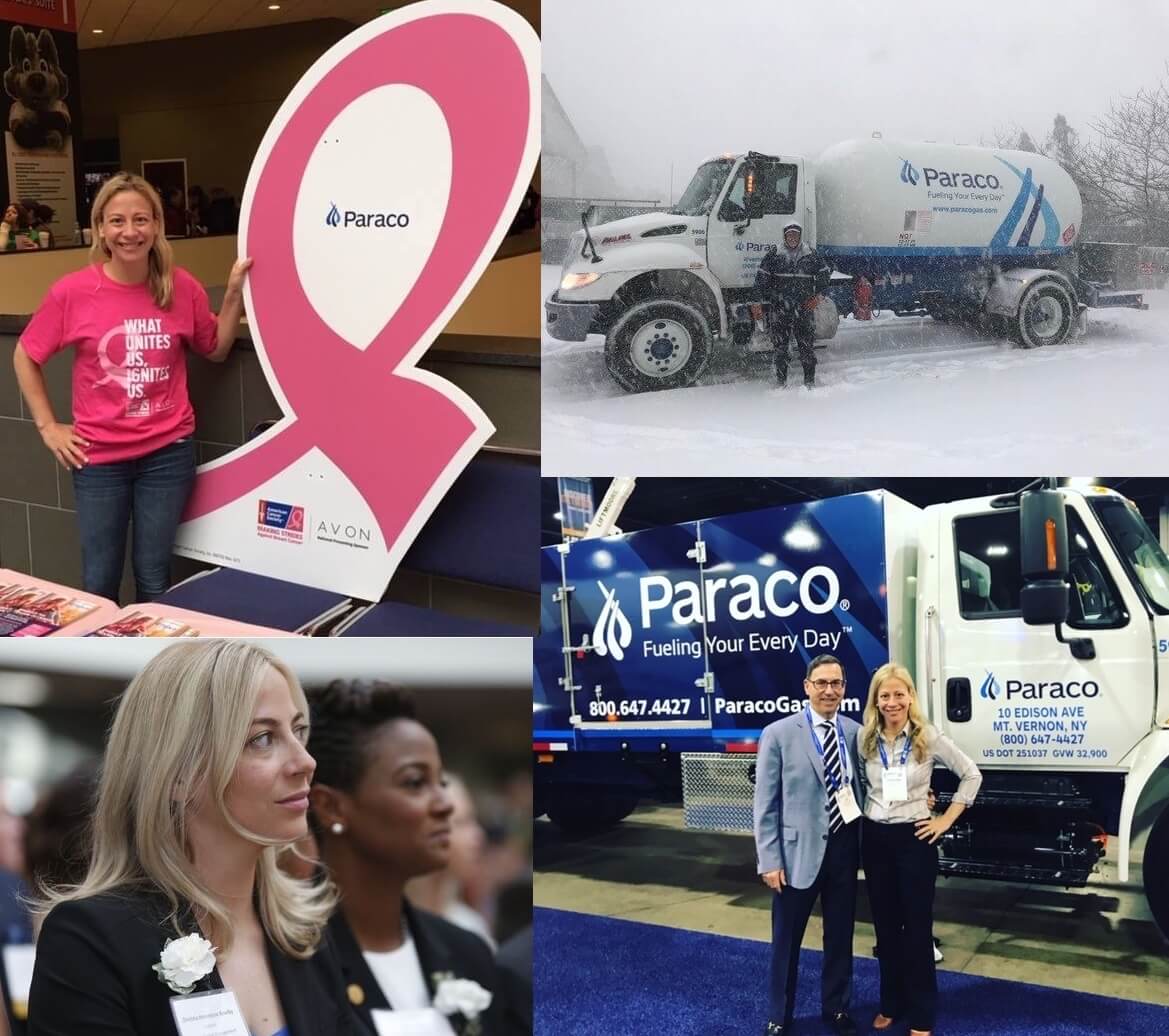
When someone returns to their family business after building a career outside of it, they can often point to a definitive moment where it clicked. Is this true in your case?
There was that moment for me. In years past, my grandfather and my father would talk to me about one opportunity or another within the family business. Each time, I just knew it wasn’t the right fit. I would ask myself, ‘If I were hiring somebody for this role, would I hire myself?’ Every time, the answer was no.
I pursued a career in recruiting and executive search instead. One day, my family called and said they needed someone to completely reorganise the HR department. That was the moment where I finally thought I would be the best person for that role. I felt like I could make a direct and immediate impact.
Working externally for nine years gave me the confidence to know where I needed to stand and what value I could bring. I was sure of my ability, and I felt good about making that my next career move.
Working externally for nine years gave me the confidence to know where I needed to stand and what value I could bring. I was sure of my ability, and I felt good about making that my next career move.
How much were you exposed to the business as a child and what impact do you feel that made on you when you joined as an adult?
I had been exposed to the business all my life. It would always be part of the conversation. Some of my most cherished memories with my dad and grandfather are talking about business concepts while walking the family dog. I used to sit in on meetings and travel to industry conferences as a child. I am grateful for that exposure to the business at a very young age.
This instilled in me the belief that it is possible to find work that you love to do. I also learned from my family that, as a family member, you must hold yourself to a different standard. I believe that you have to be the first person in the office and the last person to leave – you have to lead by example.
When I joined Paraco, I was ready, prepared and excited for the responsibility that comes with being part of a family business.
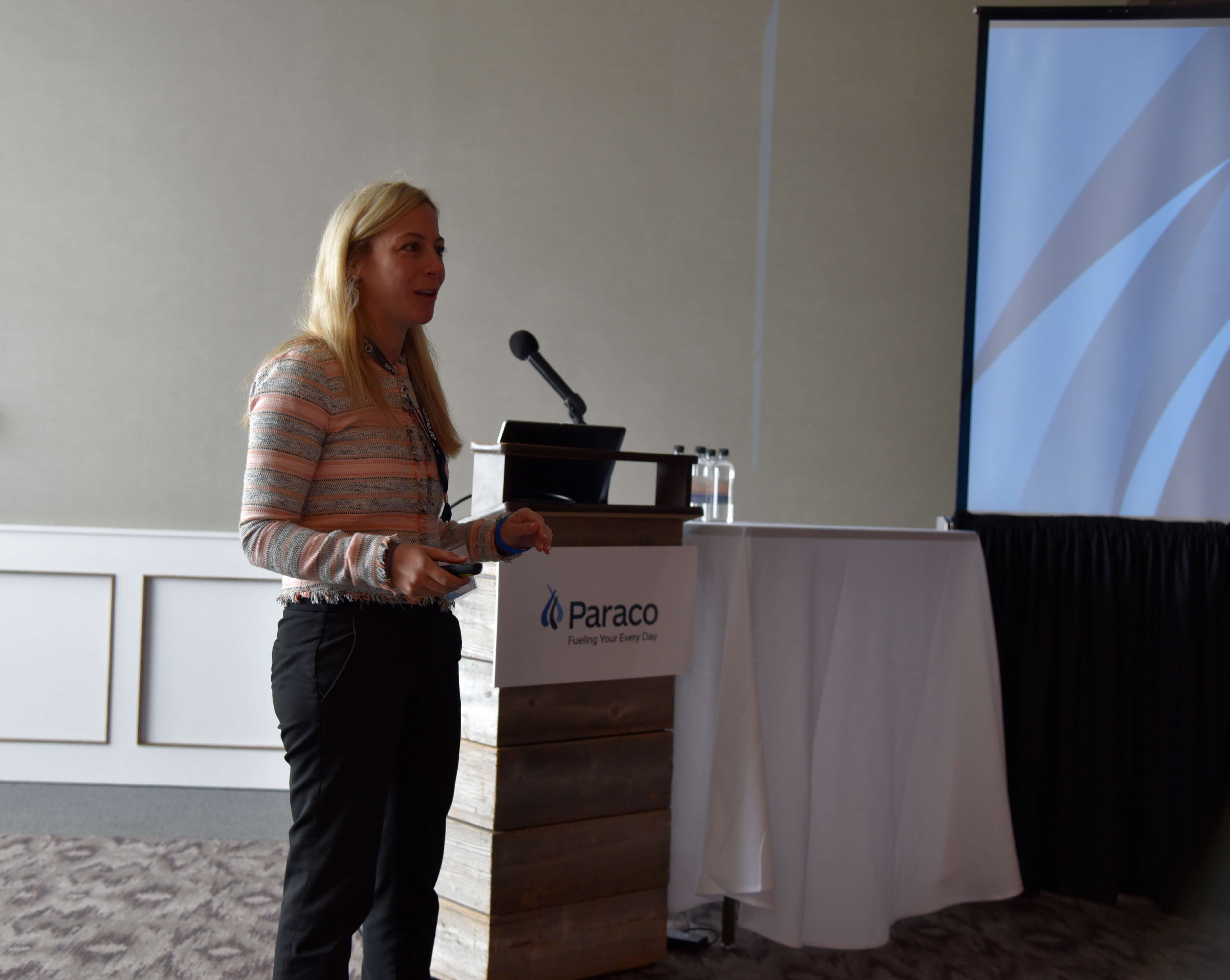
When you did come back, what was the transition process like for you?
My grandfather passed away in 2010. Unfortunately, I never had the opportunity to work with him. The transition went very smoothly. I tend to be a very hands-on person, and being able to see first-hand what the employees were facing and what policies needed to change helped me significantly in those early days. I was able to understand the business at a different level and create a better overall environment. When I accepted the opportunity at Paraco, I was commuting to our distribution locations from Boston, MA. It was difficult, and I worked very long hours, but it was well worth it.
What’s the most important conversation you’ve had with your father since you joined the business?
Every conversation we have has significance, but as my father is the CEO, it’s especially important for me to make sure that I understand his expectations and his wishes for the company. For instance, we recently talked about the direction of the organisation and the challenges related to the latest acquisitions. I shared with him that I felt positive about our current managers and the overall performance of the company. That was an important conversation for me because he confirmed that we’re moving in the right direction and gave me confidence in what I have done so far.
Every conversation we have has significance, but as my father is the CEO, it’s especially important for me to make sure that I understand his expectations and his wishes for the company.
It can be challenging when a family member comes back to the business and has to interact with non-family members in senior management positions. How did you navigate this?
When I first came into the company, I was reporting to a non-family member – our Vice President of Operations. I had a preliminary conversation with him before officially accepting the position. I asked him to hold me accountable and treat me like any other employee.
I was coming into a role that was triggering change, so I wanted to show the employees my listening skills; that I was empathetic and a strong communicator. That way, when something needed changing, it was evident to both the management and the employees why these changes were required. I had to make sure that communications would reach all individuals within the organisation.
My grandfather used to say, ‘You have to show the exact same amount of respect for the janitor as the CEO.’ Showing respect was another crucial element as I manoeuvred through my first role within the organisation and implemented changes and new policies.
Are you a lot like your grandfather?
In many ways, I am. I tend to be very persistent – I’m a go-getter. I do believe I have an entrepreneurial spirit, and I think he’d be very proud of what I’ve done with the organisation so far.
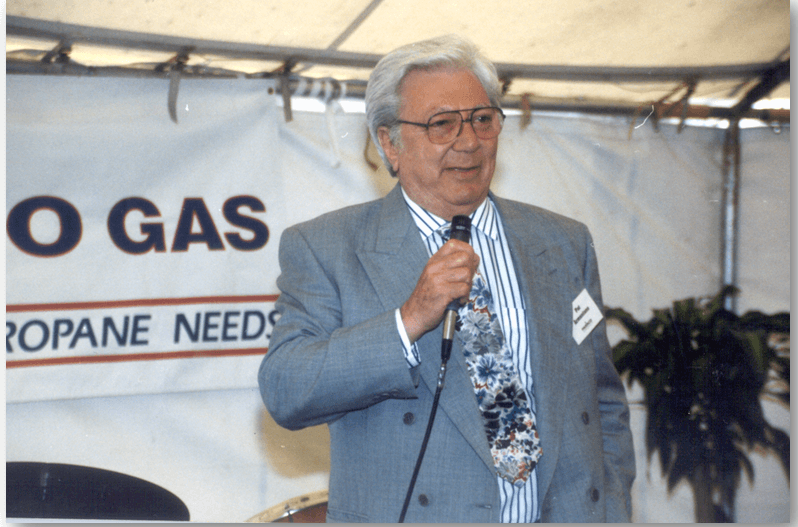
As the first woman to join the family business, do you think that influenced how you operated day to day?
When I came on board, I had two main thoughts. First of all, I had to prove myself as a family member, and the second consideration was that I was a woman within a male-dominated industry. These two thoughts strengthened my determination to prove that I was the best person for the job.
I believe that if you work hard and show that you’re a team player with a strong work ethic, it doesn’t matter what gender you are. Even those who may be used to traditional gender norms will respect you if they see that you’re pulling your weight. So, I never made a big deal out of it.
[ms-protect-content id=”4069,4129″]
When your grandfather started the company 50 years ago, it was all about entrepreneurship. Now, the company is significantly larger. How do you instil a culture of entrepreneurship in 500 people?
For the company to grow and succeed, an entrepreneurial spirit has to live within every employee. Listening to our employees and making changes where we see fit is key. It’s all about creating an entrepreneurial environment where change is not going to be held up by organisational red tape. We need to be nimble and move quickly. That’s why I think we have always had a successful track record; if we need to pivot because of either internal or external challenges, we’re able to do that.
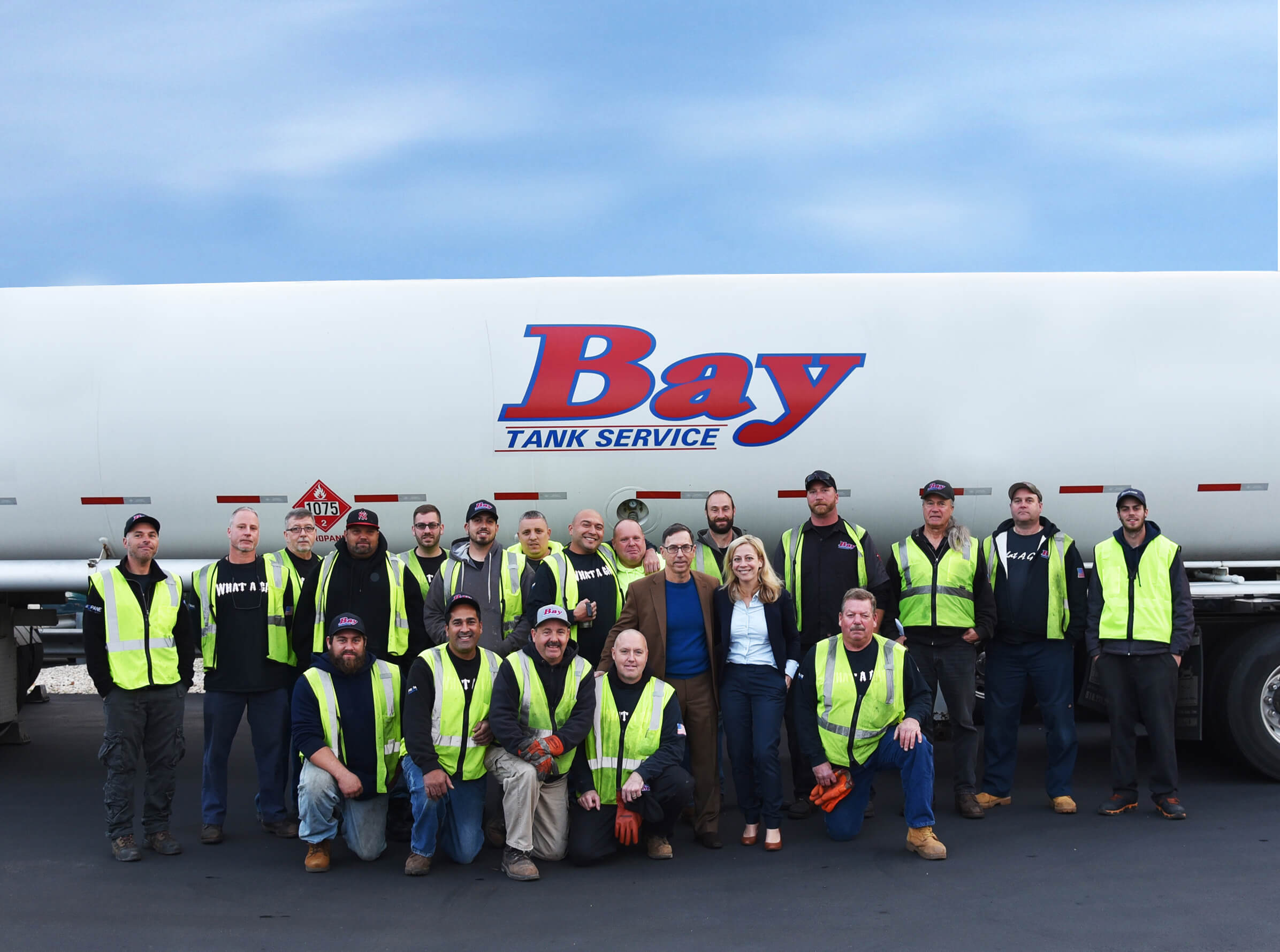
As a third-generation family business leader, what do you think is the most significant challenge that Paraco Gas is facing today?
We’ve grown dramatically over the years, with 49 acquisitions to date. We’re facing the typical growing pains that any organisation experiencing this rapid growth tends to have. This year has been transformational for us, but it has also allowed us to take a step back and look at our different departments, whether it’s customer service, dispatch and delivery or sales and marketing, and build a foundation in each area so that we can go at least another 50 years.
One example of this was how I restructured our entire sales department to focus on going back to basics. We asked ourselves, ‘What are some of the programs we can put into place to set us up for success?’ We just finished our first quarter, and we hit our numbers both for inside and outside sales. We’ve also done a lot of reinvestment in technology. We’re truly making changes within each different department to help build and solidify our foundations so that we’re ready for those next 50 years.
When you close your eyes and picture Paraco Gas in the next five to ten years, what would you like to see?
I would want the majority of our employees to say, ‘I love working for this company. I not only want to hang my hat here, but I also want to recruit other people to come and join this organisation.’ I think we’re almost there. I am satisfied with the environment we have created for our employees, but there’s always room for improvement.
I would also like to improve our overall customer experience. I want the company to leverage technology to create an outstanding customer experience. Our industry is not one that has always embraced technology, and I feel that we could step it up more. I would like us to be best in class as an organisation.
[/ms-protect-content]


